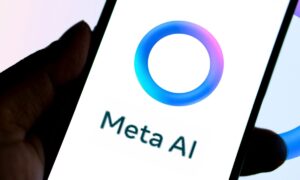Klarna Aims to Reduce Workforce by 50% Through AI Implementation

Klarna Reduces Workforce by Half, Embraces AI
Introduction to Klarna’s Restructuring
Klarna, a prominent payment platform based in Stockholm, has announced significant changes to its workforce, planning to reduce its employee count by more than 50%. This decision reflects the company’s strategic move towards utilizing artificial intelligence (AI) in its operations.
Details of the Downsizing Policy
Klarna is adopting what is known as an attrition downsizing policy. This approach means that as employees leave the company, their positions will not be filled with new hires. The focus is on integrating AI and automation into various departments to substitute for the roles that will no longer be part of the workforce.
Over the past year, Klarna has already made reductions, decreasing its staff from 5,000 to approximately 3,800. This move is aimed at streamlining operations while also making the company more efficient.
CEO’s Vision on AI Implementation
Sebastian Siemiatkowski, Klarna’s CEO, has been vocal about the benefits of AI, especially during the reveal of the company’s second-quarter results. He emphasized that using AI allows the company to accomplish more tasks with fewer resources. He mentioned that the company is internally aiming for around 2,000 employees but has refrained from setting a strict timeline for this reduction.
Meta’s Mixed-Reality Headset: Puffin
Overview of Meta’s New Device
Meta, the parent company of Facebook, is developing a new mixed-reality headset to compete with Apple’s Vision Pro. Codenamed Puffin, this headset is designed to look more like a pair of glasses, a departure from traditional VR headsets.
Design Features of Puffin
The Puffin headset is expected to weigh less than 110 grams, making it substantially lighter than the Meta Quest 3, which weighs 515 grams. Meta plans to achieve this lightweight design by using a tethered device, often referred to as a "puck," which will house the battery and processor. The headset itself will only feature the display. Although this innovative product is generating excitement, it is not expected to launch until at least 2027.
Uber’s GDPR Fine: Understanding the Violation
Overview of the Fine
Uber has recently been hit with a hefty $324 million fine by the Dutch data protection authority due to violations of the EU’s General Data Protection Regulation (GDPR). The regulator accused Uber of improperly transferring their European drivers’ personal data to servers in the United States, a move deemed a significant breach of EU laws.
Details of the Investigation
The Dutch authorities began their investigation after numerous complaints were lodged by over 170 drivers in France. Uber reported that it intends to appeal the fine, asserting that the data transfers were compliant with GDPR regulations amidst a period of uncertainty between the US and EU regarding data handling practices.
Implications of the Ruling
The regulatory body highlighted that the transferred information included sensitive details like ID documents, taxi licenses, and location data. The watchdog emphasizes the importance of safeguarding personal data, especially in light of the increasing scrutiny on data privacy and protection across Europe.
Updates on X’s Grok Chatbot
Addressing Misinformation Concerns
The Grok chatbot on X, the social media platform founded by Elon Musk, has been modified to tackle issues of misinformation regarding elections. This adjustment came after concerns were raised by five secretaries of state in the US over the chatbot’s inaccurate information about ballot deadlines.
Changes to the Chatbot’s Functionality
In response to these concerns, the chatbot has been programmed to direct users to canivote.org, an informative website dedicated to voting, for accurate election-related information. Furthermore, when responding to election questions, Grok now prefaces its answers with a reminder to consult vote.gov for up-to-date and trustworthy election information.
Importance of Reliable Sources
The secretaries of state expressed that the transition to these sources will help connect voters with reliable information and their local election officials. These changes reflect ongoing efforts to promote accuracy and trust in discussing voting and elections on social media platforms.






